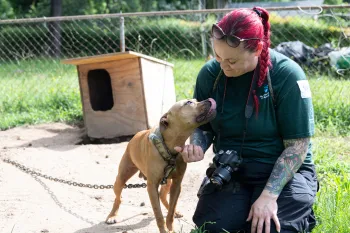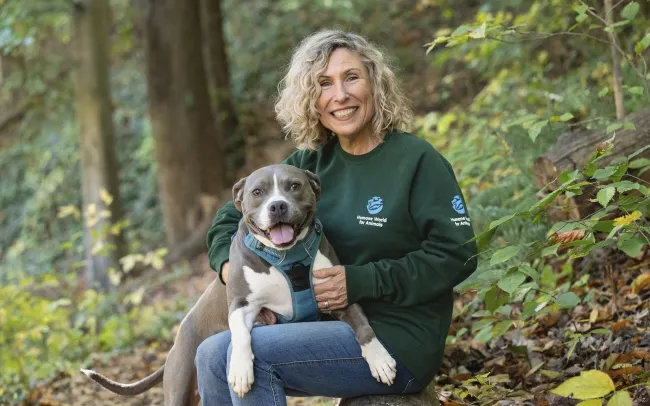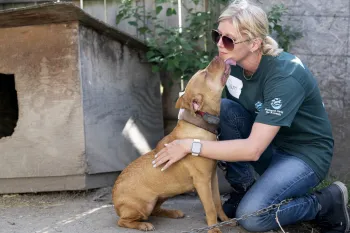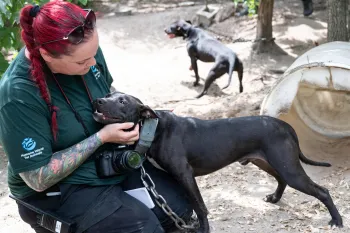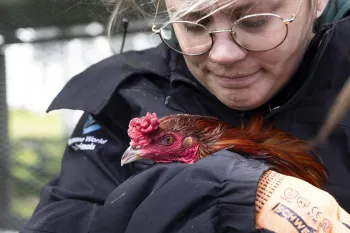This week, our Animal Rescue Team assisted the South Carolina Law Enforcement Division (SLED) in rescuing dogs from two separate alleged dogfighting operations. During this deployment, our team rescued a total of 18 dogs and puppies. Most of the dogs were chained, many had scars consistent with dogfighting, and several had either new injuries or evidence of past injuries.
We are immensely proud of our work with SLED, which has become a great partner in helping dogs from suspected dogfighting cases.
This brings the total to six properties in two states where, in recent weeks, the Animal Rescue Team has rescued dogs from alleged dogfighting cases.
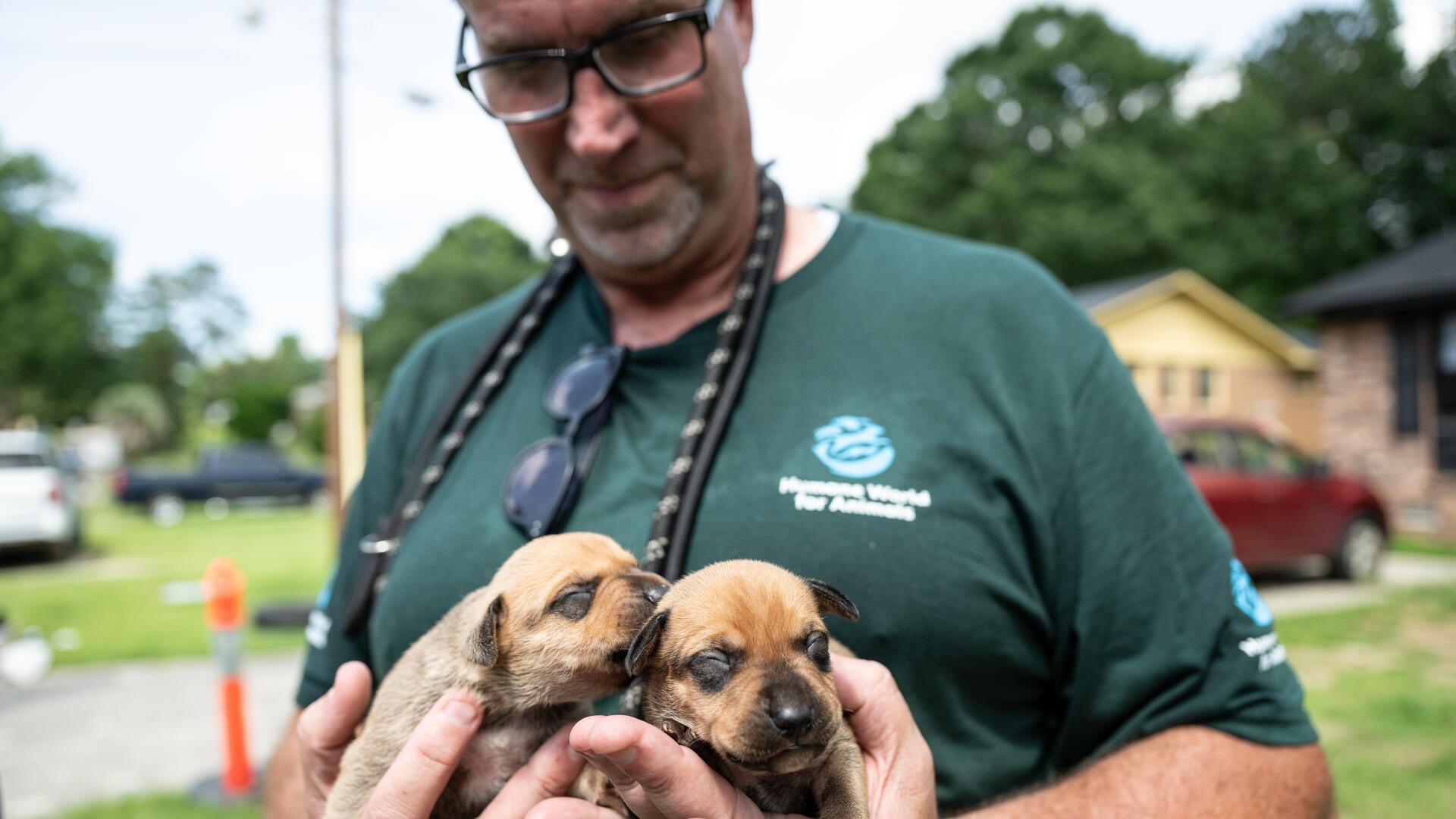
Meredith Lee/Humane World for Animals
Though the conditions are difficult to confront time and time again, it is the possibility of a new life for these dogs that keeps our Animal Rescue Team motivated. It is heartening to think that each rescue helps to break the cycle of breeding and violence that feeds dogfighting operations, and that the dogs saved can have the chance to live in a loving home.
You may be wondering about the frequency of these types of cases. Though the large number of dogfighting cases and the media attention they warrant may lead people to believe dogfighting is on the rise, we believe the truth is much more hopeful.
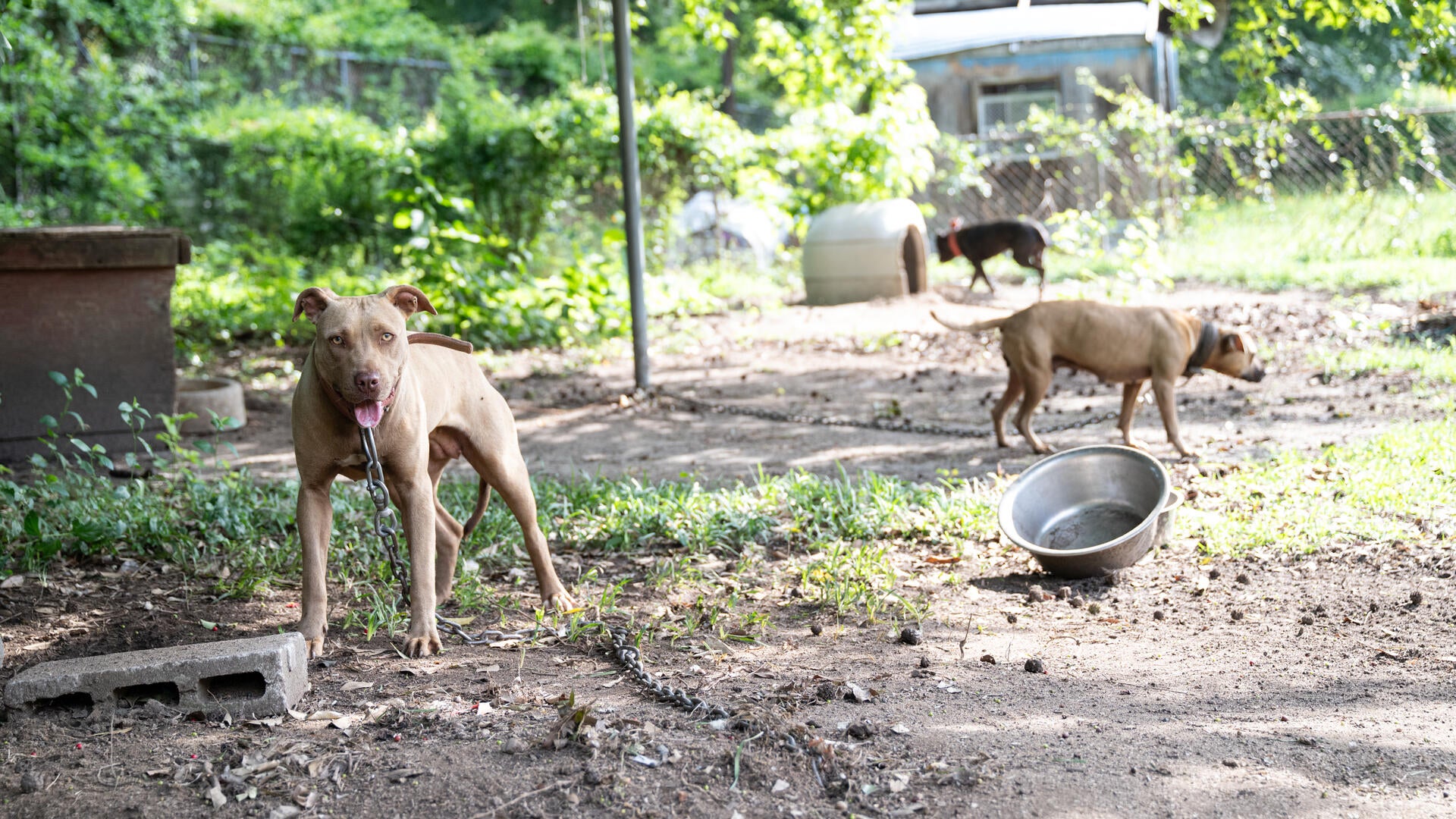
Meredith Lee/Humane World for Animals
Dogfighting has existed for a long time, but law enforcement agencies, more than ever before and on a wider scale, have both the will and tools to tackle these cases. These units increasingly use sophisticated investigative techniques and approach dogfighting as what it really is: organized crime. Dogfighters don’t operate on an individual basis but through consistent and repeated interactions and transactions with each other; one busted operation often leads to the discovery of more cases, and in the best-case scenario this can lead to a slow dismantling of networks that profit off of animal cruelty, networks that have existed for decades.
When dogfighting is a felony in all 50 U.S. states and territories, why do these operations still even exist? The simple answer is that dogfighting, like most organized crimes, has profit as its core aim. Though the specter of punishment looms and the sentences for dogfighting have increased, the lure of profit is often stronger.
In the U.S., because of the interstate, cross-jurisdictional nature of dogfighting operations, it’s essential for federal authorities to coordinate with state and local law enforcement agencies. The U.S. Department of Agriculture Office of Inspector General and the United States Attorney’s Office have over the last decade stepped up their enforcement of the federal animal fighting laws and routinely take on cases involving multiple individuals. But we have also seen the creation of units at the state and local level, such as the anti-animal fighting units within the South Carolina Law Enforcement Division and the Indiana Gaming Commission, dedicated to addressing the crime of animal fighting. And many local and county law enforcement agencies have also increased their capacity to bring down animal fighting operations.
Like many other crimes, dogfighting operates in an organized fashion on a global level. Dogfighters communicate through particular forums and websites, registering the bloodlines of their dogs and at times even openly communicating about their dogs’ winning fights. They are not constrained by geographic boundaries and they sell and fight their dogs routinely across state and country lines.
And so our Animal Rescue Team tackles dogfighting on a global level, too. Though dogfighters often profess to love their dogs or love the breed, dogs who will not fight hold no value for them and are often killed. We also have seen over and over again that dogfighting is a cluster crime. That is, dogfighters are often engaged in several illegal activities for profit, and dogfighting is only one of them.
It is critical that law enforcement has the tools and knowledge to tackle these sophisticated operations. This is also why, more than ever, it is critical that our Animal Rescue Team partner with law enforcement to provide training, intelligence and oftentimes handling, housing and eventual rehoming of dogs involved in these cases. And through our Law Enforcement Training Center in the U.S. and our country offices (particularly in Italy, Poland, Romania and Costa Rica) we train law enforcement officials on how to identify and investigate dogfighting.
We have seen momentum growing around the world to tackle these cases. And we are proud to be able to support law enforcement in dismantling these operations, whether they involve eight or 80 dogs. That’s because, ultimately, every dog rescued from a suspected dogfighting operation saves more than just one life; it helps to prevent the suffering dogs who would have been born into that life of cruelty in the future. We are determined to end animal cruelty. And every dogfighting bust sends the message that dogfighting will be tackled at its root and eventually eradicated for good.
